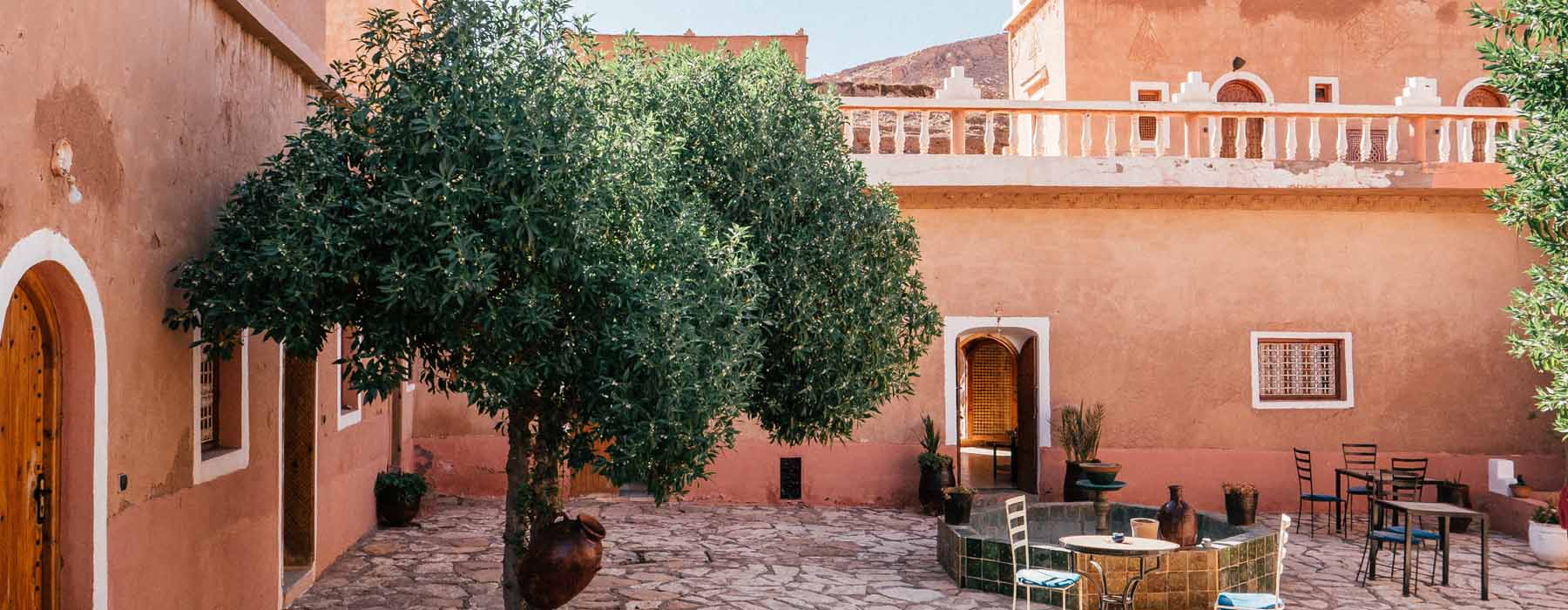Although it’s practically within touching distance of Europe, step onto the mesmerising shores of Morocco and we promise you’ll feel like a world away. A direct flight is only three hours long from the UK, making an African adventure tantalisingly within reach.
Morocco is developing at breakneck speed, and yet honours the traditions that have remained for centuries and the result is a collision of forces that’s truly fascinating. Moroccan people are hugely welcoming and are known for their warm hospitality and open, friendly nature – you’ll be offered tea at every turn (mint-flavoured naturally and at a small price), and it’s not unusual to spontaneously be invited around a family’s house for tea, especially in more rural areas.
Enter houses barefoot, accept any offers of food and drink, and eat like everyone else – with your right hand. To call Moroccan food delicious is an understatement – the flavours and spices are simply wonderful and there’s always a pyramid of fluffy couscous or marinated meats to dive into.
Shopping at the souk
When you’re navigating the labyrinth-like tunnels and dimly-lit lanes of the souks, packed floor-to-ceiling with stalls selling everything from copper plates to chickens, spices to amazing fabrics, it’s wise to know how to haggle. All merchants will start at their highest, and most ridiculous price, so don’t be shy in knocking them down and getting the best price – it’s all in good humour and as long as you’re willing to walk away, there are many deals to be had. Show sellers you’re not easily fooled and you will reap the benefits – after all, until money has exchanged hands, haggling is king in Morocco. In bigger cities there are a growing number of shops with prices that are fixed and non-negotiable, but this is rare and in the souks, especially, the economic verbal tennis played between buyers and sellers is a very real sport. If you’re planning on a bigger, pricier purchase, consult your guide or concierge first – purchasing an item like a beautiful Moroccan carpet in a souk can be a wonderful way to bag a bargain, but it’s worth going to a recommended seller to get the best quality for your money. Expect to get lost in the souks – it’s all part of the fun, after all – and if someone offers to help you find the way out, know they expect to be paid.
Although bursting with interesting characters and minute-by-minute photo opportunities, don’t take a picture of someone without their consent first, as many locals will expect payment and it’s advisable to agree a price beforehand.
Much to the disappointment of countless tourists who travel to Morocco, the beautiful mosques that adorn the country are off-limits to non-Muslims. Apart from one or two exceptions, including the exquisite Hassan II Mosque in Casablanca, the rest are no-go areas, although still very pretty from the outside and a worthy photo opportunity.
Taxis
Taxis are a great way of getting around Morocco. There are two types: grand taxis and petit taxis. Petit taxis only circulate around town and are perfect for short journeys, hopping from restaurants to your hotel and the souks. A big taxi is for longer journeys – take one to travel between two cities and for bigger adventures. Don’t expect the same level of comfort that you’re used to at home or a meter for that matter – most of the time you’ll have to negotiate a fixed price before setting off. If you’re feeling plucky you can even hire a car and drive around Morocco yourself. Just keep in mind that the improbable is possible and the unexpected is likely in Morocco! Roads aren’t just reserved for cars and you’ll meet a whole host of vehicles and creatures on your journey: carts, bicycles, tractors, donkeys, goats – if it’s got wheels or legs, it’s likely you’ll be sharing the road with it, so it’s worth paying attention.
More information
The month of Ramadan brings with it changes in the rhythm of local life. A Muslim Moroccan will not be shocked to see a traveller eat, but out of respect, it’s best to avoid eating in public during the day. Life is often slow until midday, but the evenings are marked by the breaking of the fast, which brings with it a uniquely buzzy atmosphere. There are modified schedules for historical sites, museums, shows, bazaars and shops. Most restaurants remain open and hotels follow their usual pace. The end of Ramadan ends with Eid, three days of low-key family celebrations and a bountiful menu of delicious Moroccan fare.
Culture Hit
Read: The Assembly of the Dead (2017) by Saeida Rouass is a detective story set in 1900s Marrakech, offering a remarkable insight into Moroccan society at the time.
Watch: Casablanca (1942). Not just the greatest film set in Morocco, but one of the greatest full stop. Try and stay dry-eyed during the Marseillaise scene.
Listen: Gnawa, a musical style blending Sufi styles and West African rhythms to induce an almost trance-like state as part of healing rituals.



